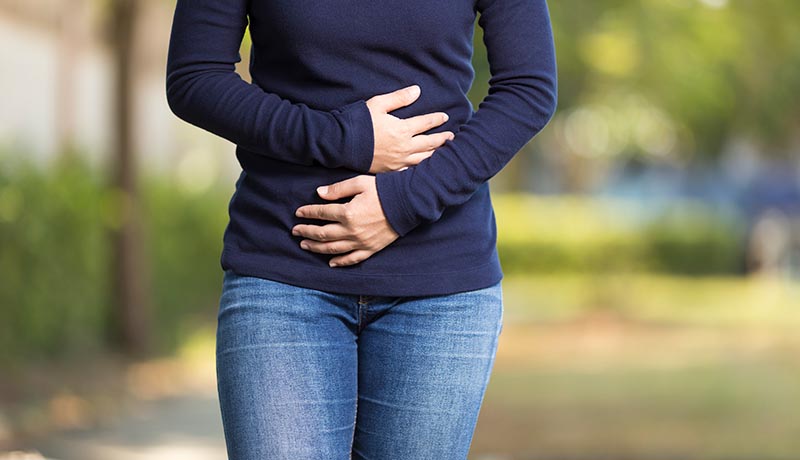Bloating
Symptoms in Detail
Signs of bloating can vary from woman to woman...
...and is one of the most common occurring symptoms of menopause.

Signs of bloating
The signs of bloating can vary from woman to woman but include abdominal fullness and tightness, distension of the abdomen and increased burping or flatulence. The duration and intensity of these signs also vary.
What causes bloating during menopause?
The most likely cause of bloating during menopause is fluctuating hormones. Estrogen has an effect on water retention that occurs naturally during a woman’s menstrual cycle. When estrogen levels become erratic the pattern of water retention follows suit which leads to bloating. Estrogen also plays an important role in bile production, essential for the digestion of fats, and bloating can result when fats are not thoroughly digested. The other most common cause of bloating is a build up of gas in the gastrointestinal system, the incidence of which increases with hormonal fluctuations.
Know the 34 symptoms of menopause
Here are all of the documented symptoms of menopause you need to look out for:
Physical Symptoms
- Incontinence
- Changes in Body Odour
- Bouts of Rapid Heart Beat
- Breast Pain
- Headaches
- Joint Pain
- Itchy Skin
- Burning Mouth Syndrome
- Electric Shock Sensation
- Digestive Problems
- Gum Problems
- Increased Tension in Muscles
- Formication - Crawly Skin
- Paresthesia - Numbness in Hands and Feet
- Osteoporosis - After Several Years






